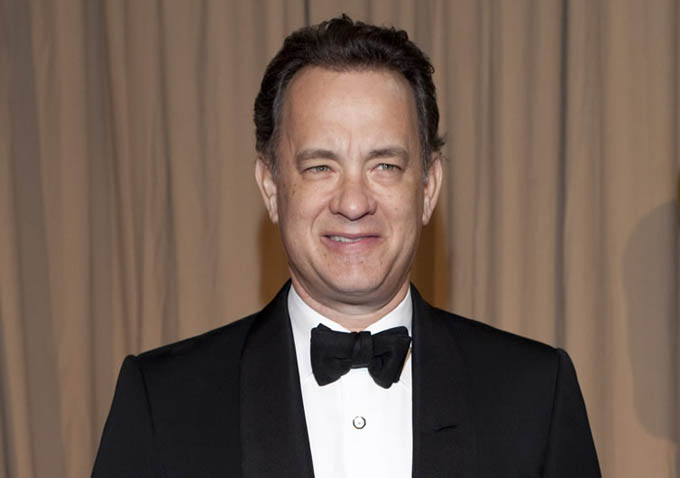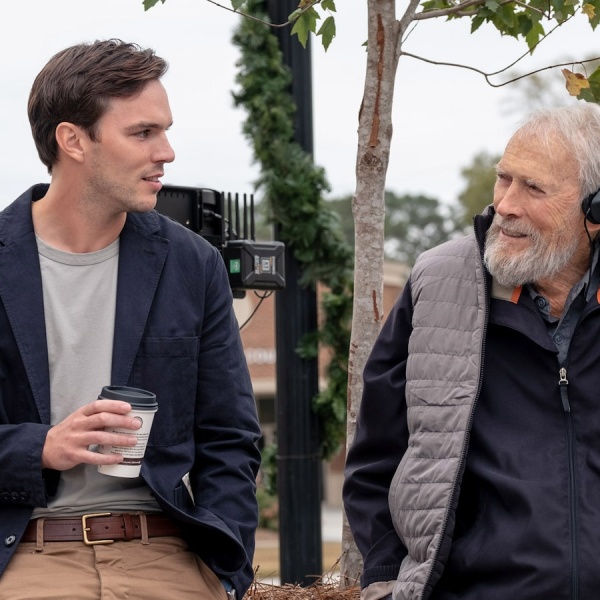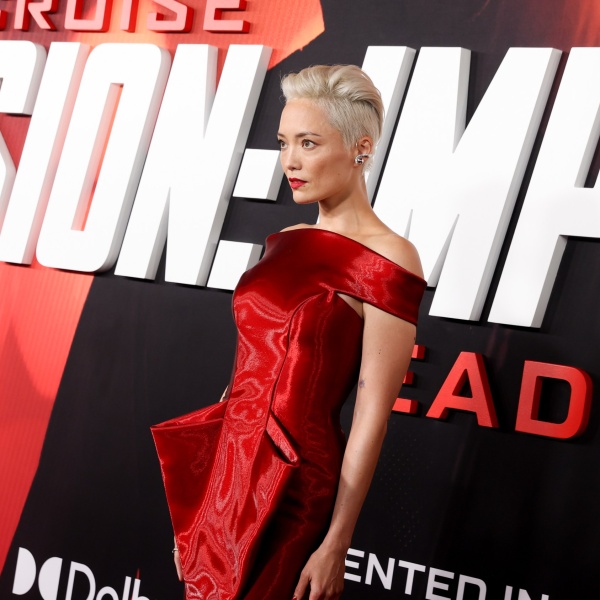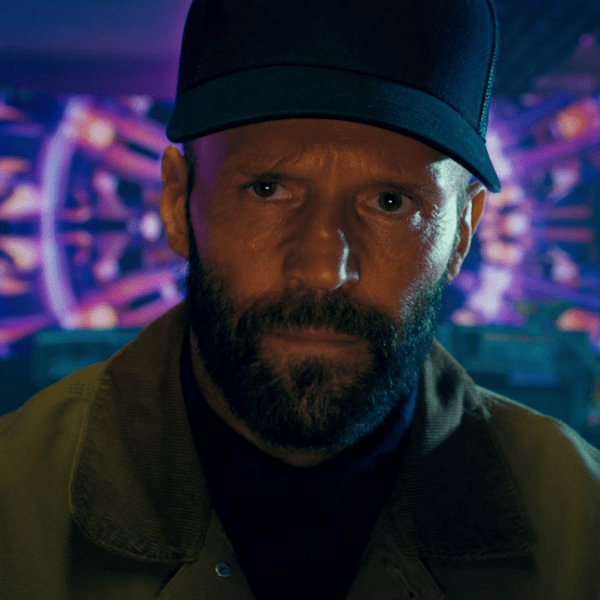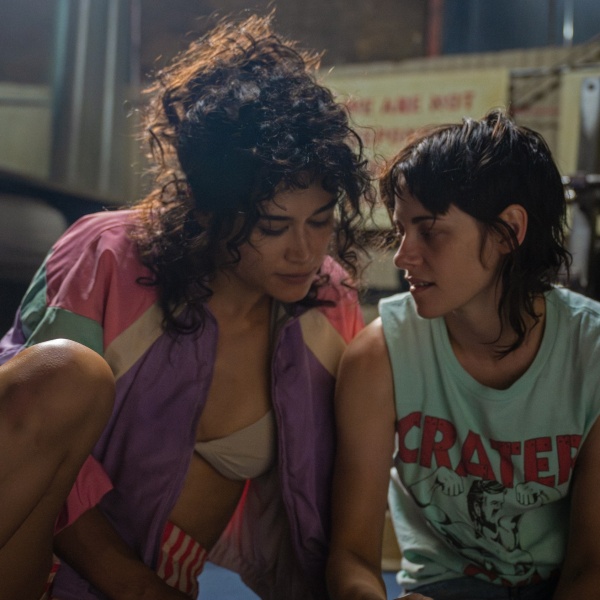
For comedians aspiring to be dramatic actors, there is no better model than Tom Hanks. A two-time Academy Award winner and five-time nominee, this unflashy, modern-day Jimmy Stewart or Henry Fonda has also shown every struggling actor on earth that if you persevere you can actually make people forget you started out as a comedian and then simply a romantic comedy lead (remember the dreaded “You’ve Got Mail” and “Sleepless in Seattle” years). Hell, if you endure long enough you can even wipe out the memory of TV movies like “Mazes and Monsters” and sitcoms like “Bosom Buddies” (where’s that other dude now?).The first man to win back-to-back Best Actor Oscars since Spencer Tracy, he embodies a kind of fundamental decency like few others, but to stereotype him in that way does the star a disservice: like Stewart and Fonda, some of his most engaging performances come when he subverts that persona.
“Larry Crowne,” Hanks’ first directorial effort in a decade and a half, hits theaters tomorrow. Unfortunately, as you’ll know from our review, it’s something of a wash-out, but at the very least it gives us a good excuse to look back at some of our favorite Tom Hanks performances across his 30-year career, in the latest in our Essentials series (we’ve already done Ewan McGregor and Nicolas Roeg in the last few weeks). Check it out after the jump.
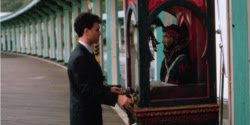 “Big” (1988)
“Big” (1988)
It isn’t just Tom Hanks that elevates “Big” above the fates of similar ‘80s comedies “Vice Versa” and “Like Father Like Son.” However, he’s certainly the biggest part of the success of this winning Penny Marshall film, which has aged far better than its often-awkward protagonist does. A lesser actor would have been all goofy and gawky–an element which Hanks nails–but the future Oscar winner scored his first nomination for a layered performance that goes beyond just impersonating a 13-year-old stuck in a 30-year-old’s body. He’s alternately vulnerable, silly, sad, gleeful and terrified. We can’t decide whether we like him best when he’s romancing fellow toy company exec Elizabeth Perkins, playing “Heart and Soul” with boss Robert Loggia or crying in a hole of a New York hotel room. This film distills everything we love about Hanks into a single role and it was an indicator of things to come: his seemingly effortless facility with drama, comedy and romance would later manifest itself in “Sleepless in Seattle,” “Toy Story,” “Saving Private Ryan,” and dozens of other films. When we watched it as kids, we could identify with the desire to grow up fast, and now as adults, we’re nostalgic for the freedom of childhood, all thanks to Hanks’ near-perfect work here.
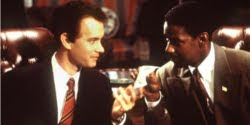 “Philadelphia” (1993)
“Philadelphia” (1993)
These days, a straight actor playing a gay character is seen as being as Oscar-baity as any Holocaust film, let alone playing a gay character with a terminal disease. But 20 years ago, for one of the biggest stars in the world to take on such a role was a brave decision, particularly as the film in question, Jonathan Demme’s “Philadelphia,” was the first Hollywood picture to tackle AIDS, then a decade into the public’s consciousness. And, while the film doesn’t always escape the danger of turning into a well-meaning but obvious Stanley Kramer-style picture, there’s no denying Tom Hanks‘ performance. Undergoing a physical transformation just as impressive as the one in “Cast Away,” seemingly aging decades over a period of months. The character risks coming across as a little saintly, but Hanks undercuts it in one of the best scenes, where he admits how he contracted the disease, and the actor refuses to ever make him a victim. His chemistry with co-star Denzel Washington (who’s equally good) is very strong, so much so that you wonder why they haven’t worked together since. The film hasn’t aged well — the belief shared by virtually every character that AIDS can be contracted like it was the flu was overblown even then — but for the most part Demme keeps it just the right side of sentimental. Hanks won his first Oscar (having been previously nominated for “Big”) and it’s a much more deserving victory than his one the following year for “Forrest Gump.”
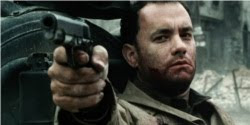 “Saving Private Ryan” (1998)
“Saving Private Ryan” (1998)
When “Saving Private Ryan” hit theaters in 1998, both critics and audiences applauded director Steven Spielberg’s brutally realistic depiction of World War II. Tom Hanks’ quiet and imperturbable performance in the film as the enigmatic Capt. John H. Miller was the next logical step in his rise to leading man status, but the role contained unexpected textures. While superficially, Hanks was portraying an American everyman and a god-like leader whom his soldiers had built up through varying mythologies, this is actually a dutiful man who is forced to put on a brave face. The character is exhausted, frustrated and resentful of his mission — risking his men’s lives for some random soldier he does not know. Expressing more through weary eyes than dialogue, there’s an almost anesthetized look that washes over his face every time a new obstacle arises. In one of the film’s more moving moments, Private Ryan (Matt Damon) has just shared the memory of his last night with his brothers before leaving for war and asks Capt. Miller to tell him about his wife and her rose bushes back home. He replies simply, “No. No, that one I save just for me.” We get the sense that he has been transported back home for just a brief moment, a temporary escape from the insanity that surrounds him. In ‘Private Ryan,’ Hanks is both the most callused of the men and also the most vulnerable, and in the depths of war, his truly heroic moment is urging his men to hold onto a sense of dignity and decency amidst it all. It’s no surprise that the film notched Hanks his fourth Best Actor nomination, but more importantly, it solidified his rising status as an actor who could relate some of America’s most troubled history with an approachable complexity that resonated to the core of moviegoers around the world.
 “Cast Away” (2000)
“Cast Away” (2000)
Hate on Tom Hanks and Robert Zemeckis for “Forrest Gump” if you want (we know some of us certainly do), or marvel at the exclusion of Hanks’ portrayal of a retard who meets everyone that matters in the ’50s, ’60s and ’70s while reminiscing over chocolate bon bons in this feature, we’ll still take the duo’s collaboration on “Cast Away” over it any day of the week. While mild dissent in our ranks may exist over Zemeckis’ film and Hanks’ portrayal within, with all due respect: fuck you guys. A one man show that’s all Hanks (it earned him his fifth Best Actor Oscar nom), he carries the hard-to-pull-off film in two excellently bifurcated notes. Initially, Hanks gained weight to portray the paunchy FedEx executive everyman who is stranded on a desert island when his rush delivery airplane crashes over the South Pacific. Production then stopped for an entire year so Hanks could drop almost 60 pounds and grow a woolly beard to play the emaciated man trying to survive on an island with only his volleyball friend Wilson to keep him company. Throughout, Hanks’ various stages of despair, loneliness, resolve and surrender are acutely real and poignant, filling in the contours of a $85 million picture that is essentially a man talking to himself on an island. But in fact, the middle act of the film is almost silent: no dialogue, voice-over or score. It is simply Tom Hanks and the grimaced emotions on his face. Perhaps just as moving is the film’s sentimental, but still affecting conclusion. Hanks returns to civilization years later, his fiancée having moved on with a new husband and children. His quiet resignation is devastating but ultimately, his where-will-life-take-us-now acceptance and curiosity is a hopeful and life-affirming reminder that, as cliche as it sounds, tomorrow the sun will still rise.
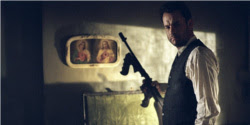 “Road to Perdition” (2002)
“Road to Perdition” (2002)
With the film now almost a decade old, it’s easy to forget how much of a game changer the role of Michael Sullivan was for Tom Hanks. While he had already been making turns in dramas — as the valiant astronaut in “Apollo 13,” as the gallant AIDS victim in “Philadelphia,” as the stoic WWII Captain in “Saving Private Ryan,” as the shipwrecked man in “Cast Away” and as the simpleton storyteller of history in “Forrest Gump” — this was the first (and still only) time where the actor took on a deeply, morally conflicted character whose sympathy is hard earned. Based on a graphic novel and exquisitely directed by Sam Mendes, the film finds Hanks playing an enforcer on the run from the very crime family he works for with his young son in tow. As they spend six weeks on the lam in the Midwest, Hanks becomes more closely connected with his progeny than he ever had before and together they form a unique, though undeniably loving, bond. Hanks has to navigate a whirl of emotions here that are all contained in the poker face facade he needs to keep up in order for the both of them to survive. It’s one of Hanks’ best performances because much of what is transmitted between father and son are some tiny gestures, subtle changes in facial expressions and sudden acts of warmth. The role finds the actor challenging himself with a part that is all small moments, with no grand gestures or important speeches to fall back on and Hanks performs wonderfully in a minor key. It’s a cold, harsh world Michael Sullivan lives in, but in that strange, heightened, surreal time with his son, it might be the best time of his life.
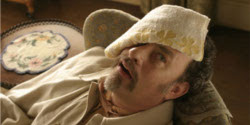 Alternates: “Splash” was the movie that really made Hanks an A-lister, and it’s an accomplished comic turn to be sure, although he has given better performances since. From the everyman department, “Sleepless In Seattle,” “Apollo 13” and “The Green Mile” are all solid versions of what he’s done better elsewhere, and while he’s also strong in “Catch Me If You Can,” it’s not his most colorful performance. He’s clearly having enormous fun in “Charlie Wilson’s War,” although the film isn’t what you’d hope for from a collaboration between Mike Nichols and Aaron Sorkin.
Alternates: “Splash” was the movie that really made Hanks an A-lister, and it’s an accomplished comic turn to be sure, although he has given better performances since. From the everyman department, “Sleepless In Seattle,” “Apollo 13” and “The Green Mile” are all solid versions of what he’s done better elsewhere, and while he’s also strong in “Catch Me If You Can,” it’s not his most colorful performance. He’s clearly having enormous fun in “Charlie Wilson’s War,” although the film isn’t what you’d hope for from a collaboration between Mike Nichols and Aaron Sorkin.
Finally, we’d be remiss without mentioning two of the very best Hanks performances, which just missed out on the list. It might only be a vocal turn, but Hanks is key to the success of the “Toy Story” films: just try to imagine the jealous but caring Woody with anyone else in the role. And, while the film is easily one of the Coen Brothers’ least successful creatively, Hanks is tremendous in “The Ladykillers,” a performance quite unlike any other he’s given in his career, so good that he almost drags the film up with him. Hanks has long been a favorite on “Saturday Night Live,” one of the most frequent hosts in the show’s history, but he’s rarely given the chance to stretch his comic chops in a similar way, bar “The Ladykillers”: maybe it’s time for him to seek out, say, Adam McKay, for the full-on comedy he’s always been destined to do. — Kimber Myers, Oliver Lyttelton, Matthew Newlin, Rodrigo Perez, Kevin Jagernauth
